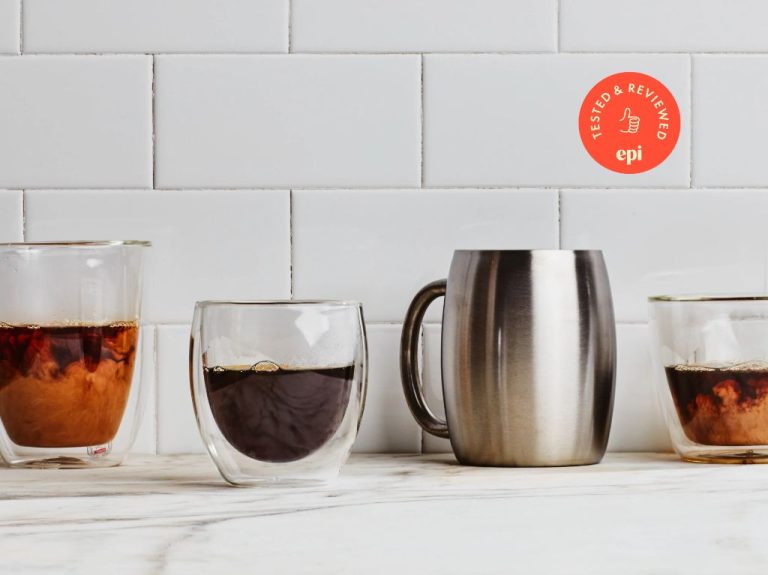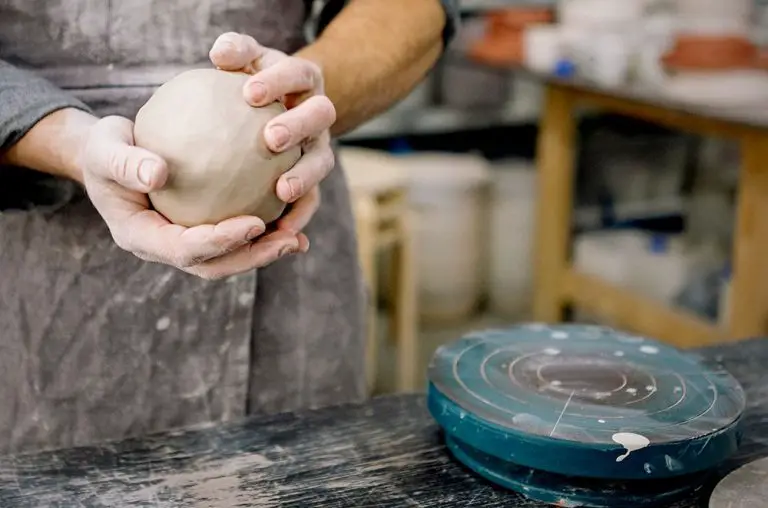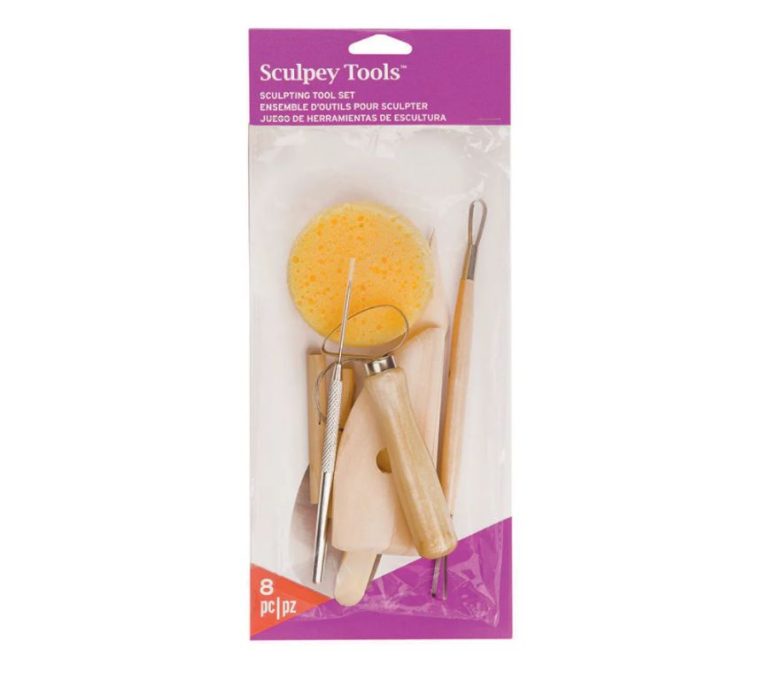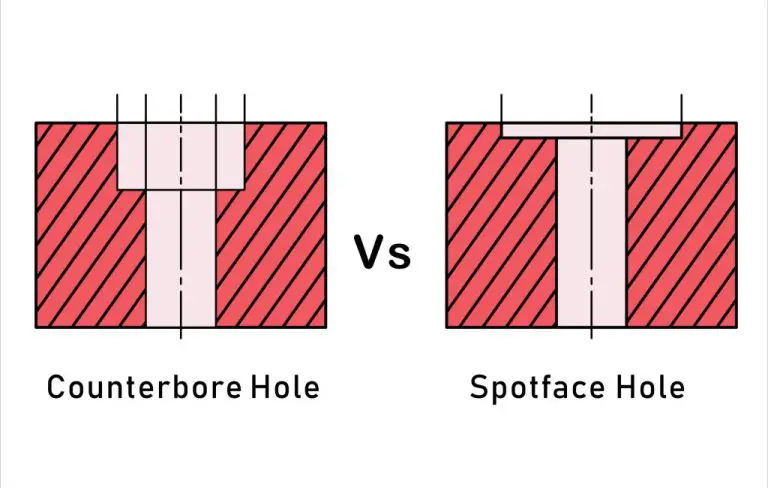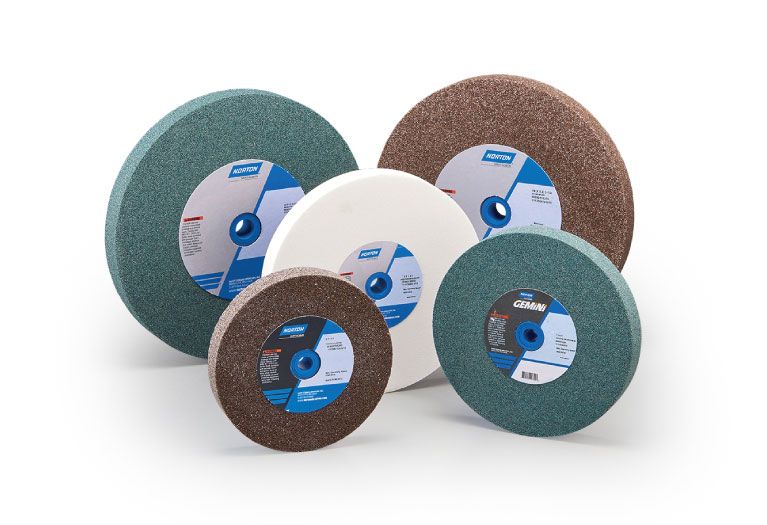Does Calcium Bentonite Clay Clog Pores?
What is Calcium Bentonite Clay?
Calcium bentonite clay is a type of absorbent clay that forms after volcanic ash ages. It’s composed of aged volcanic ash and has high amounts of calcium, silica, magnesium, sodium, copper, and iron (1). The name comes from Fort Benton, Wyoming where large deposits of this clay can be found.
Calcium bentonite clay has a strong negative charge which allows it to absorb toxins, heavy metals, bacteria, viruses, and other impurities. This gives it a wide range of potential uses and benefits. It’s commonly used in skincare, dental care, and cleansing products due to its absorbent and adsorbent abilities. Some research shows it may help treat skin conditions like acne, remove heavy metals from the body, and even protect against aflatoxin exposure when ingested (2).
How Calcium Bentonite Clay Works on Skin
Calcium bentonite clay works on the skin in a few key ways:
Absorbs oils and impurities – The clay has absorptive properties that allow it to draw out impurities from the skin, including excess oil and bacteria. This helps to gently exfoliate, clarify, and purify the skin.
Exfoliates dead skin cells – As it absorbs oils and impurities, bentonite clay also removes dead skin cells. This reveals the fresh new skin underneath. Some research indicates bentonite clay’s minerals, like silica, assist with skin cell turnover.
Improves circulation – Applying a clay mask creates a warming effect that opens up blood vessels and increases circulation. Enhanced blood flow brings more oxygen and nutrients to the skin’s surface.
Sources:
https://www.healthline.com/health/calcium-bentonite-clay
https://www.medicalnewstoday.com/articles/325241
Does it Clog Pores?
One of the main benefits of calcium bentonite clay is its ability to draw out impurities from the skin without getting stuck in pores. The clay has a strong negative charge that bonds to the positive charge of toxins, oils, and other debris in pores. When washed off, the clay helps lift away these substances without leaving any residue behind.
Some sources indicate the clay doesn’t actually enter the pores, but rather adheres to their surface to extract impurities as it dries and is rinsed away. Either way, numerous studies have found using calcium bentonite clay does not clog pores or lead to breakouts. In fact, it can help reduce acne by removing excess sebum and bacteria from pores while calming inflammation.
“Calcium bentonite clay can help treat oily skin and clogged pores thanks to its clarifying and oil-controlling properties,” says Dr. Shereene Idriss in an article for Allure. “It won’t get stuck inside pores and cause breakouts.”
So while some heavier, thicker clay masks may pose a risk for clogged pores, the fine particles of bentonite clay are able to enter and exit pores without issue. Just be sure to rinse thoroughly after use.
Potential Benefits for Different Skin Types
Calcium bentonite clay can provide skin benefits for different skin types when used properly.
Oily, Acne-Prone Skin
For those with oily, acne-prone skin, calcium bentonite clay can help absorb excess oil and sebum from the skin’s surface. Its absorbent properties may help minimize the appearance of pores and control shine (1). The clay also has antimicrobial properties, which may help fight acne-causing bacteria (2). Applying a clay mask 1-2 times per week can help regulate oil production, clear up existing breakouts, and prevent future acne flare-ups.
Dry, Sensitive Skin
Calcium bentonite clay may also benefit those with dry, sensitive skin when used in moderation. The clay contains trace minerals like calcium, magnesium, and silica that can help nourish and hydrate the skin (3). Its anti-inflammatory properties may also help calm irritation and redness. However, those with very dry skin should avoid overusing bentonite clay, as it can potentially dry out the skin further. Using a hydrating clay mask once a week can help draw out impurities without stripping the skin.
Mature Skin
For mature skin, calcium bentonite clay can help minimize the appearance of wrinkles, fine lines, and age spots. The clay may tighten pores and improve skin elasticity over time with regular use (4). Its absorbent properties can help draw out impurities from deep within the skin to reveal a brighter, more youthful complexion. Applying a weekly clay mask can also boost circulation and oxygen flow to the skin for an overall revitalizing effect.
Sources:
(1) https://www.medicalnewstoday.com/articles/325241
(2) https://www.webmd.com/a-to-z-guides/bentonite-clay-benefits
(3) https://www.healthline.com/health/calcium-bentonite-clay
(4) https://www.medicalnewstoday.com/articles/325241
How to Use Calcium Bentonite Clay on Your Face and Body
Calcium bentonite clay can be used on the face and body in a few different ways to help improve skin’s appearance and address various issues like acne, oily skin, and irritation.
Face Masks
One of the most popular ways to use bentonite clay is as a face mask. To make a face mask, mix calcium bentonite clay powder with water or other ingredients like apple cider vinegar or aloe vera gel until it forms a spreadable paste. Apply a thin layer evenly over your face, avoiding the eye area. Let it sit for 10-20 minutes until dry before rinsing it off thoroughly (Healthline). Use a face mask with bentonite clay 1-2 times per week.
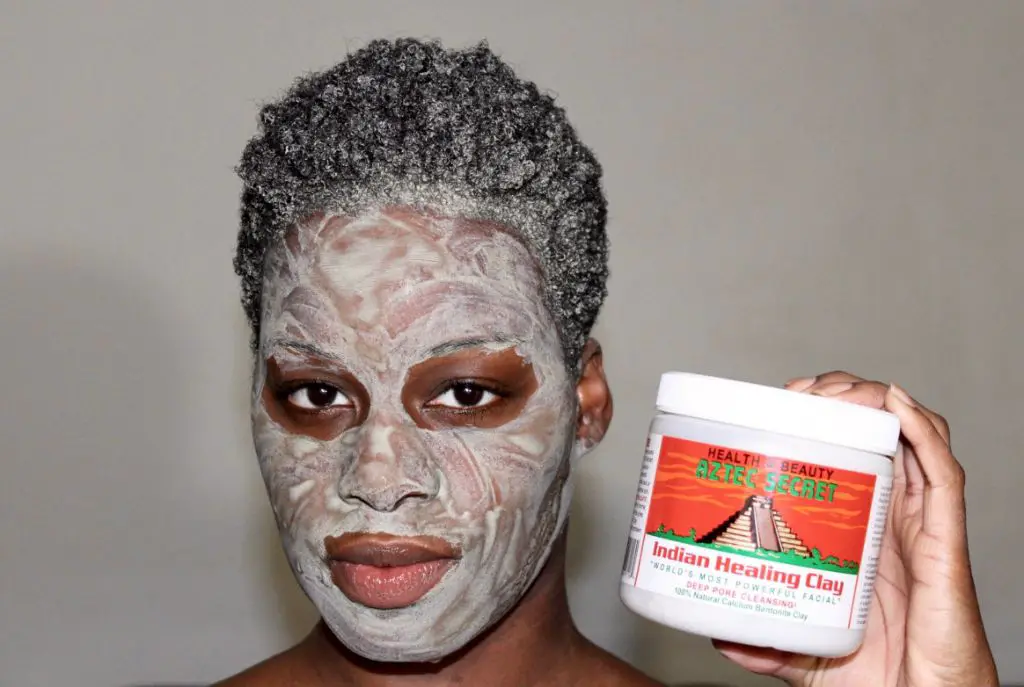
Full Body Masks
For an extra detoxifying treatment, apply a calcium bentonite clay mask all over your body in the shower. Mix the clay powder with water to form a thick paste and smooth it over your skin, allowing it to sit for 5-10 minutes before rinsing (Medical News Today). Be careful as wet clay can be slippery. Full body masks can be used weekly.
Spot Treatments
Calcium bentonite clay can also be used as a targeted spot treatment on areas prone to breakouts, irritation, or oiliness. Mix a small amount of the clay with water or apple cider vinegar and dab it onto the affected areas using a cotton swab or your fingers. Let it dry for 10-15 minutes before rinsing. Use spot treatments as needed up to daily.
Using Clay with Other Ingredients
Calcium bentonite clay can be combined with various other natural ingredients to enhance its effects or target specific skin concerns. Some popular ingredients to mix with bentonite clay masks include:
Aloe Vera – Aloe vera gel helps soothe and hydrate the skin. Its anti-inflammatory properties can reduce redness and irritation. Aloe also contains antioxidants that may fight free radicals and signs of aging. Mixing aloe vera with clay creates a nourishing face mask good for dry, sensitive skin [1].
Apple Cider Vinegar – The acetic acid in ACV can exfoliate dead skin cells and soften sebum. It also has antibacterial properties to combat acne. Combining ACV with bentonite clay makes an effective mask for oily, acne-prone skin [2].
Essential Oils – Oils like lavender, tea tree, and lemon add soothing aromas. Tea tree oil specifically has antimicrobial benefits for fighting acne. Use 1-2 drops per clay mask to reap the benefits of essential oils [3].
Safety and Side Effects
Calcium bentonite clay is generally considered safe for topical use when used as directed. However, some potential side effects to be aware of include:
Skin irritation: Some people may experience skin irritation, redness, or dryness after using bentonite clay, especially those with sensitive skin. It’s best to patch test before applying to the face or body. Don’t use on broken or damaged skin.
Health conditions: Those with chronic health conditions like kidney disease should avoid ingesting bentonite clay due to potential mineral imbalances. It’s also not recommended for pregnant or breastfeeding women. Consult your doctor before using.
Contaminants: Some bentonite clay products may contain heavy metals like lead or aluminum. Choose a reputable brand that provides lab testing to ensure purity. Avoid formulas with additives.
Blockages: There is a small risk of intestinal blockage if consuming calcium bentonite clay long-term in high doses. Keep use occasional and follow package directions.
With responsible use, most people can use bentonite clay safely. But test a small amount first and discontinue use if any irritation occurs.
Comparing to Other Clays
Bentonite clay is often compared to other popular cosmetic clays like kaolin and rhassoul. The main differences come down to mineral content:
Kaolin clay is a very mild, fine clay derived from kaolin mineral. It contains mainly kaolinite and is rich in potassium, iron, magnesium and calcium (1).
Rhassoul clay contains mainly silica and magnesium. It has high mineral content, contains almost no sodium, and has excellent absorption properties (2).
Bentonite contains montmorillonite, which gives it a strong negative charge. This leads to excellent absorbing and detoxifying abilities. Calcium bentonite has more calcium, while sodium bentonite has more sodium (3).
So in summary: kaolin is mild and gentle, rhassoul is mineral-rich with purifying abilities, and bentonite has superior absorption powers. While they share similarities, their distinct mineral profiles set them apart.
(1) https://www.healthline.com/health/beauty-skin-care/bentonite-clay-mask
(2) https://www.byrdie.com/rhassoul-clay-benefits-4768710
(3) https://www.thesaltbox.com.au/news/what-is-bentonite-clay-and-how-to-use-it-to-cleanse-and-purify-naturally/
The Takeaway
Calcium bentonite clay has become a popular natural skin care ingredient due to its potential benefits for different skin types. When topically applied, it may help draw out impurities, toxins, and excess oils from the skin and unclog pores in the process.
However, there are some mixed opinions on whether calcium bentonite can actually clog pores itself if left on for too long. The clay works by absorbing liquid and can potentially dry out the skin if not washed off properly. Most experts recommend using clay masks for 5-10 minutes to avoid over-drying.
Proper use involves applying a thin layer to clean skin, letting it sit for just a few minutes, then rinsing completely with warm water. As long as you don’t let it over-dry on the skin, calcium bentonite clay should not clog pores, but rather help draw out debris from pores to keep them clean.
When used occasionally as directed, calcium bentonite clay masks are generally considered safe and beneficial for most skin types. Just be cautious with use around sensitive or broken skin.
References
[1] Luh, Ding-Yu, and Shin-Kuang Wu. “Two Kaolins from Southeastern China—Differences in Impurity Mineralogy, Structural Disorder, and Surface Properties.” Clays and Clay Minerals, vol. 45, no. 6, 1997, pp. 851–858.
[2] Williams, Lynda B., and Rebecca J. Haydel. “Evaluation of the Medicinal Use of Clay Minerals as Antibacterial Agents.” International Geology Review, vol. 52, no. 7-8, 2010, pp. 745–770.
[3] Carretero, M. Isabel, and Gerhard Lagaly. “Clay Minerals and Their Beneficial Effects upon Human Health.” Applied Clay Science, vol. 21, no. 3-4, 2002, pp. 155–163.
[4] Viseras, César, et al. “Uses of Clay Minerals in Semisolid Health Care and Therapeutic Products.” Applied Clay Science, vol. 37, no. 1-2, 2007, pp. 16–27.


